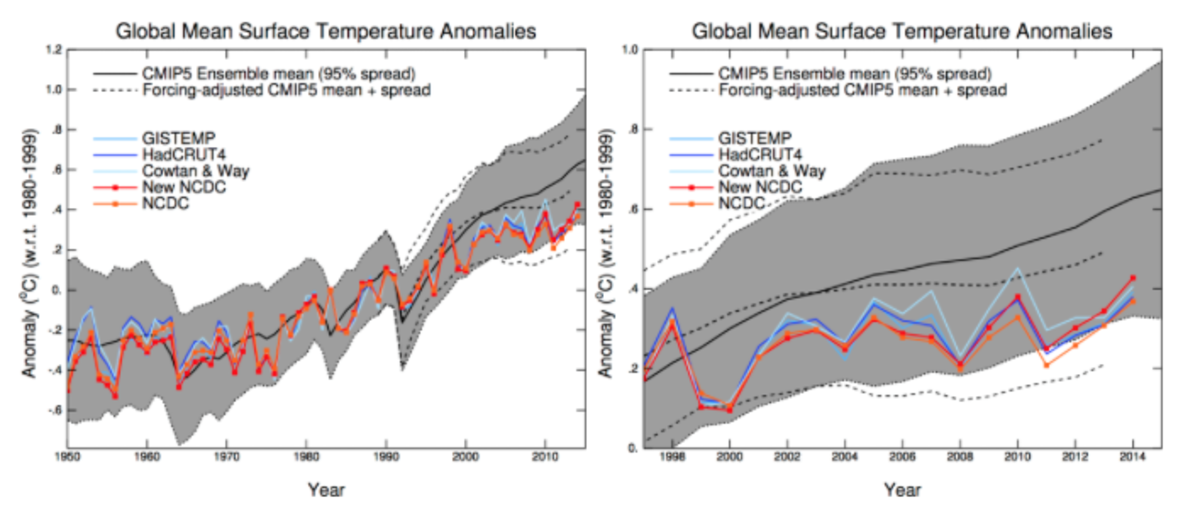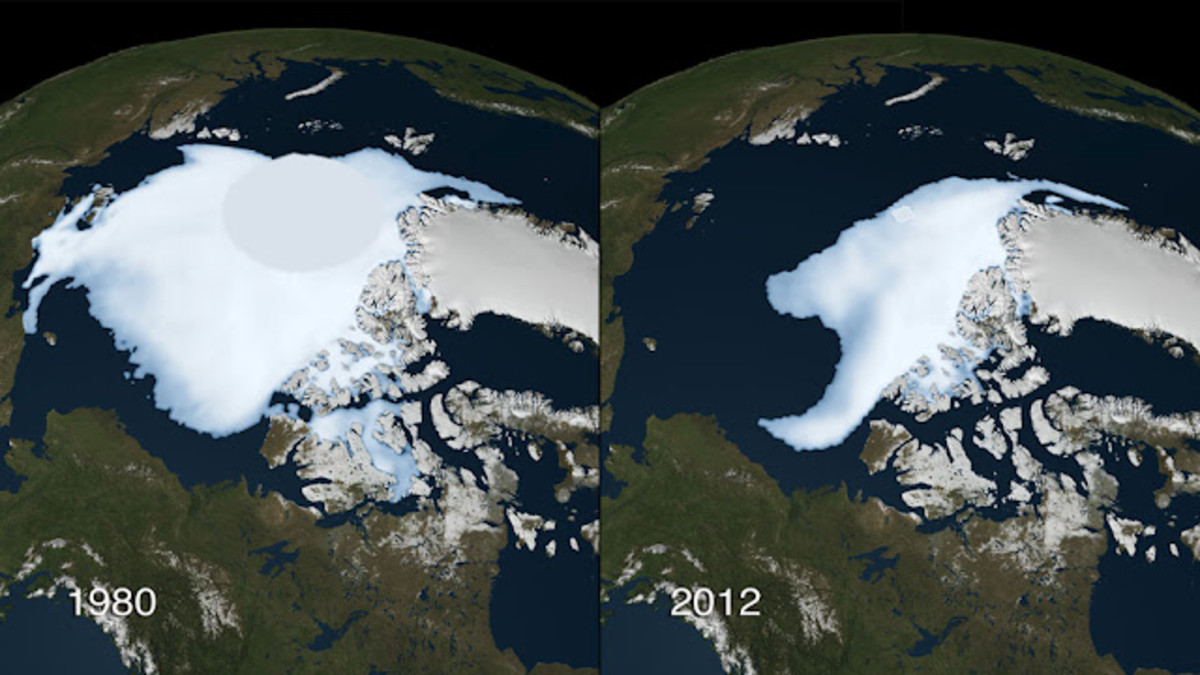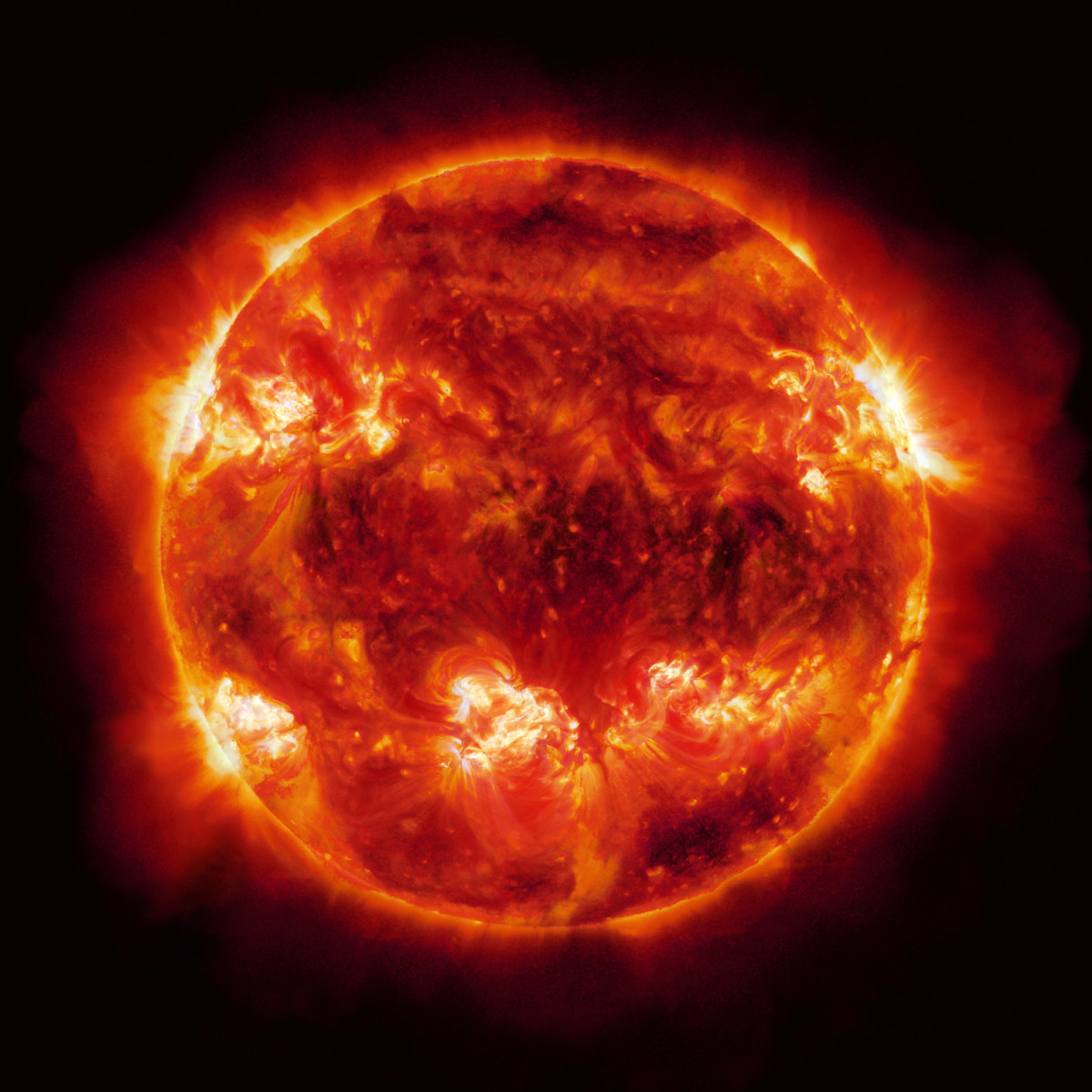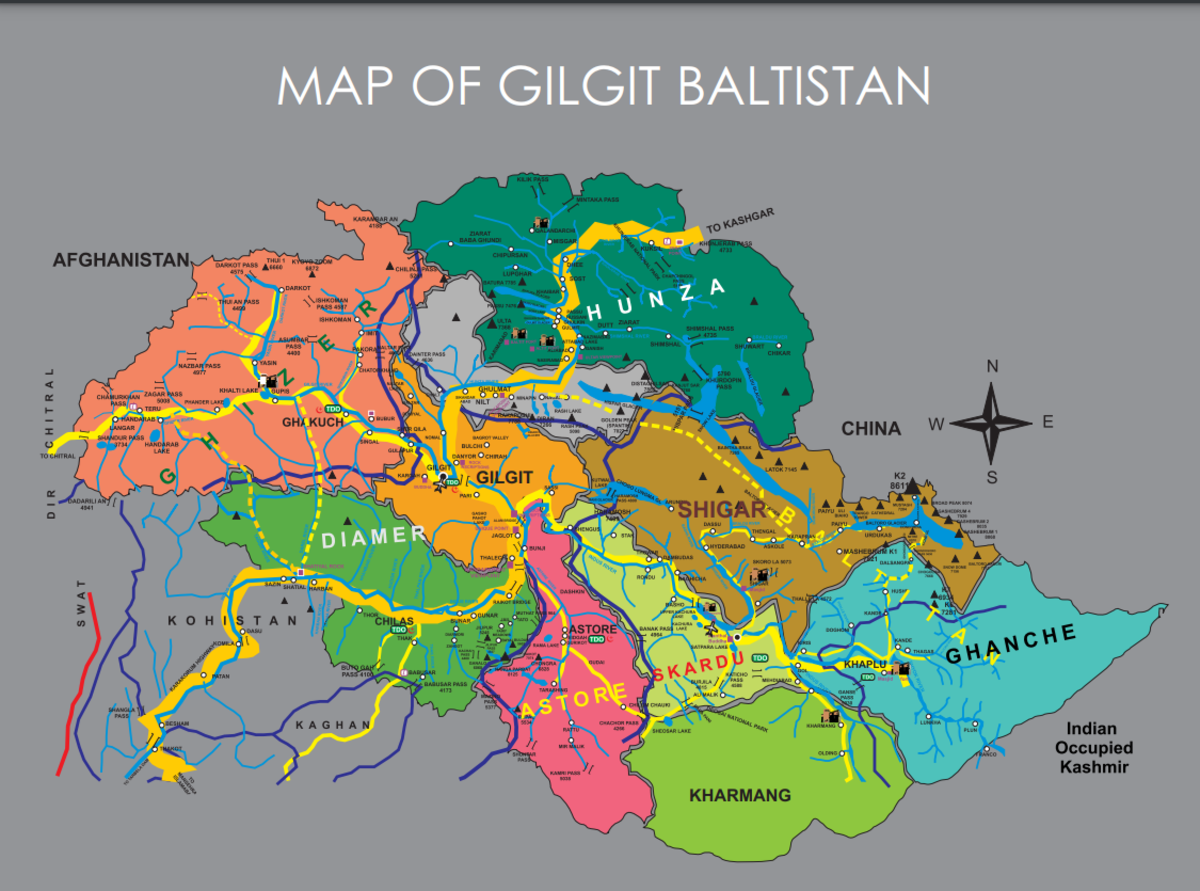What If It Takes 1000 Years?
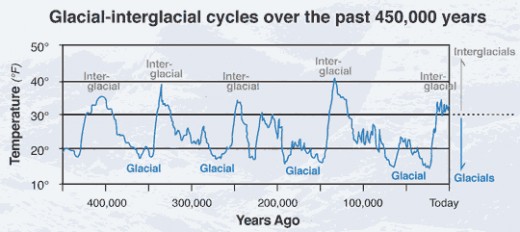
Introduction
Climate change or global warming is a complex issue. It is complex because of two factors. It is a global event and therefore involves many cycles and mechanisms that are interrelated. There are positive and negative feedbacks that also come into play. Second, it is an event that plays out over decades or even longer time scale.
- Apr. 2017
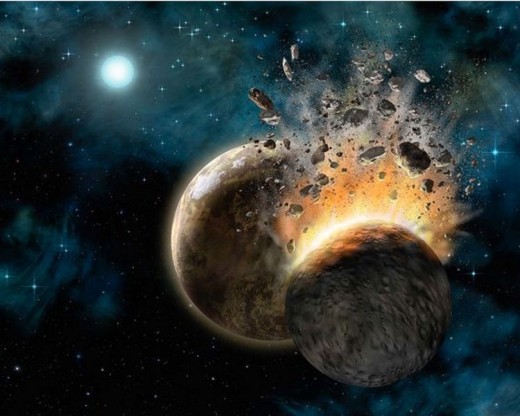
Background
Learning from our past will guide us going forward. That is a good rule of thumb. We always teach history in our schools so that we can learn from them. It is hoped that we will not make the same mistake twice.
In the case of climate change, we have to do a better job of studying and understanding our past. I am referring to not just the last few hundred years but a few hundred thousand years. The reason is our planet's climate has always been changing. We know from studying ice cores that our planet has undergone many cycles of ice ages and warming cycles. We have some theories on how they occur due to the planetary motions... however, we don't know the mechanics of it.
Some scientists has proposed some radical theories such as Velikovsky who believes that our planet have been influenced by periodic catastrophic events. These are the reason for our current states. His controversial book "Worlds in Collusion" in 1950 was proven to be correct years later even though at the time, it was rejected by the majority of the scientific community.
In studying past ice ages, we need to understand what the trigger is. Next, we need to understand the rate of change. How fast can events happen? Finally, we need to understand what event causes it to reverse? Apparently, it seems to repeat naturally every 100 thousand years or so. Why?
The reason we need to understand this is directly tied to the current climate change debate. What if the climate scientists are correct in their theory of the greenhouse effect? And yet, wrong on the projections of "abrupt" changes due to human induced global warming?
In the fossil records, we know of these natural climate cycles. We know it takes approximately 1000 years to change course from cooling to warming naturally. What we don't know is the causes exactly. Is it a slow incremental event such as the slight planetary motion that creates a slight warming or cooling from one year to the next? Or a drastic event such as an asteroid strike like the one that killed off the dinosaurs 65 million years ago? Or a super volcano on earth that produces so much ash that blankets the globe for a few years that may trigger a cooling cycle?
Glacier National Park
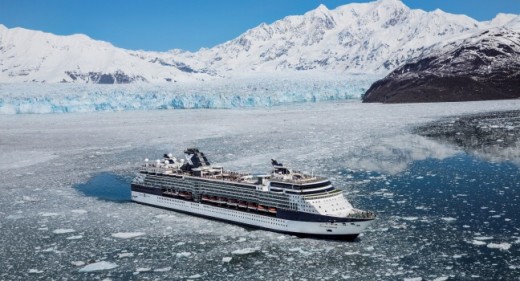
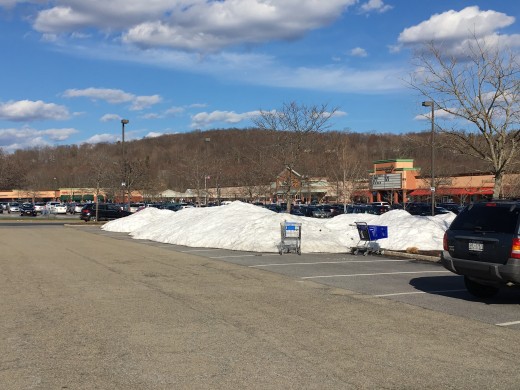
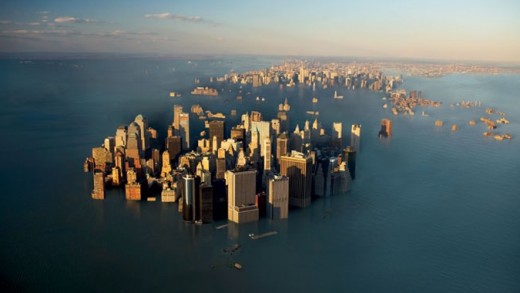
A Theory...
Here is a theory that may be explored and so far has not been addressed by climate scientists. What if it takes 1000 years for change regardless of causes? That is to say, the size of the earth has such a mass and a momentum that it takes 1000 years to change course.
Here is a personal observation. I will use snow in my area of the northeast to illustrate. In the winter here, we get a lot of snow fall. Sometimes we get 2 feet of snow within a 24 hour period. In our shopping malls, they plow the parking lots and pile up the snow into a mound 10 feet tall. This is so shoppers can park their cars. These mounds will sit there till early Spring even when the temperature is now 60 plus degrees. Even though the local environment has warmed drastically, the snow will take a long time to melt away.
If you extend this same theory to the whole planet, you will realize that the same rule applies. We have ice in the poles and glaciers that are mile high. The time frame required to melt that is a very long time. I am sure some scientists can compute roughly how much energy is needed to melt the poles for example to create a 20 feet rise in our oceans. Indirectly, we can determine the time frame assuming we have a warming climate of 2 degrees C. This is the current best estimate of AGW for the next 30 years.
What am I driving at? Here we are worried about climate change due to humans use of fossil fuel. Al Gore goes around the world warning us of pending disaster. He also produced an award winning documentary "An Inconvenient Truth" that is being shown to all grade school students. What if the problems he highlighted does not fit with reality? What if, even if we continue with our fossil usage, the planet will warm by a few degrees C and yet, the dire consequences are not as bad or happen as quickly as he proposed.
Let's explore the possibility of 1000 years. What if that is a physical limitation. Regardless of how hot our planet gets, such as in previous warming periods, it will take 1000 years or so for the full effect to show up. Interesting?
What will be our response? To explore this further, let's go back in history. 1000 years ago, in 1017, what was the planet like for us humans? That was the middle ages in Europe. The new world has not been discovered. China was an empire called "the Middle Kingdom" ruled by the Jin Dynasty and Egypt was ruled by Rome after many dynasties of Pharohs...
If the planet will be affected negatively in 1000 years, such as a global rise of the oceans by 20 feet, it will be hard but not life threatening. The slowness of these changes will allow humans to adapt. We can relocate our coastal cites inland. Florida map will be redrawn and the same applies to Manhattan. As the earth warmth, some areas on the globe will become affected positively such as Greenland. Others obviously will be affected negatively with increased heat and drought. Again, humans are very good at adapting. We will move to where the climate is conducive to crops and away from desserts.
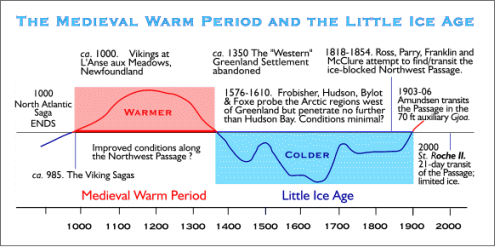
Ocean Rise 1880 - Present (EPA)
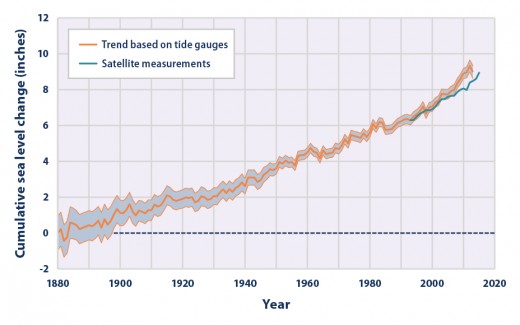
Projections
If all else being equal and unchanged, the projected ocean rise of 20 feet will take about 2000 years. Approximately 1 foot per every 100 years.
2001 - A Space Odessey
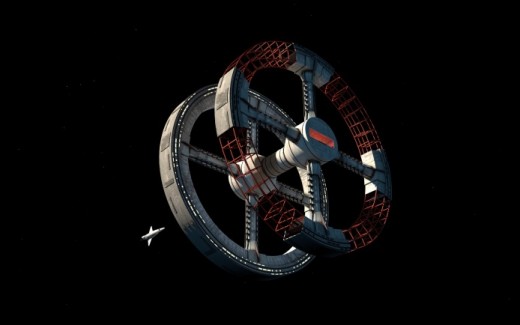
Summary
As a race, we humans are very adaptable and ingenious. We invent technologies to help make our lives easier. We adapt to our environment and in some cases, we change the environment artificially to accommodate us. The invention of air conditioning makes living in hot humid regions more hospitable. As we speak, there are people working on colonizing Mars. Who knows? In 50 years, we may be living on space stations as 2001 A Space Odessey portrays or on moon bases or even Mars. The problems of climate change will be mitigated due to our technologies. We may have time on our side.
A Summary of a talk by Jeff Severinghaus 3/31/2017
I attend a talk at the Lamont Doherty Observatory last week. It was a talk by Jeff Severinghaus, a professor at the Scripps Institution of Oceanography. His talk was about - "What we Have Learned About Our Future From Ice Core Studies of the past?"
It was refreshing to attend a talk with some balance in its presentation. Most talks are related to climate change and human induced effects. This talk actually presented a more balanced view.
Here is the 4 main points he made. The overriding message is that climate change will affect the next generation or even the next next generation on the order of 100 years.
He presented 2 points that are not so good and 2 points that are actually good news.
The first is that Antarctica was 11 degrees C colder in the last ice age.
The second, his studies confirmed that rain belts shifts north and south due to climate change. This would have negative effect on our food production...drought will lead to failed states and conflicts.
AMOC - Atlantic Meridian Overturning Circulation would not be affected by climate change. That is a good thing. This would keep the North Atlantic warm.
Carbon 14 and CH4 study shows there were no fossil release of Methane gas when ice shelf melts. Again this is good news for reduced greenhouse gases.
The other message I took away from his talk was when climate scientists use the term "abrupt" changes, they are speaking in the time frame of 30 years. Not the time frame we are typically familiar with.
He also was blunt in saying we still don't know why ice ages come and go every 100,000 years or so.
His last admission was that the scientific community estimate a range of 1.5 degrees C to 4.5 degrees C for a doubling of CO2 concentration. That is a big range in 35 years of research, they have not been able to make a better prediction than that.
Some Related Info
- Climate Change Predictions - How Accurate Are They?
A status report for Climate Predictions in 2015. - Study: Global Warming Caused By ‘Natural Variations’ | The Daily Caller
Global temperature change observed over the last hundred years or so is well within the natural variability of the last 8,000 years. - How Much Energy Is Required To Melt All The Ice In Greenland?; Paths To Knowledge (dot Sc
The Wicked Greenland Soothsayers of the West say "I'm Melting", now "How much energy is required to melt all the ice in Greenland?" by pwl How much energy is required to melt all the ice in Greenland? How much ice is there in Greenland?
© 2017 Jack Lee

